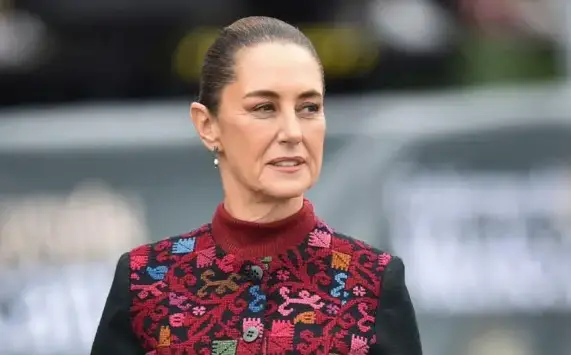As global problems like climate change, inflation, and wars worsen, hardline authoritarian leaders are cementing their grip on power, exacerbating tensions worldwide. In Europe, the far-right has gained ground with Viktor Orbán in Hungary, Georgia Meloni in Italy, and the rise of nationalist movements in France, Austria, and the Netherlands. In Asia, Xi Jinping maintains tight control in China, Vladimir Putin leads an autocracy in Russia, and countries like Iran, India, and Turkey exhibit authoritarian tendencies. Meanwhile, in the United States, Donald Trump and the Republican Party have secured victories in the presidential, Senate, and House elections. In Latin America, autocratic regimes endure in Cuba, Nicaragua, El Salvador, and Venezuela. The AMLO-Sheinbaum tandem threatens to transform Mexico into a new autocracy, with opposition parties facing tougher odds under newly implemented legislation.
At first glance, the world seems to be dominated by the “strongmen” of politics, which bodes ill for humanity. These regimes often prioritize institutional control and block politics rather than democratic alternation. Internally, they focus on reshaping or controlling institutions, while externally, their policies align with military-centered bloc strategies. This dynamic is starkly evident in the crises unfolding in Ukraine, Lebanon, and Gaza.
In Mexico, this authoritarian trend has resulted in a judicial reform opposed by most Supreme Court justices. The reform dismisses current members and mandates that future judges, magistrates, and justices be elected through public voting. These officials will also operate under newly established oversight institutions controlled by the ruling coalition.
With this reform, Mexico is abandoning its imperfect yet pluralist democratic model, which, through successive electoral reforms, had managed to guarantee democratic governance and political representation.
United States vs. Mexico
Mexico’s next significant challenge lies not within its borders but abroad. Donald Trump has strategically used Mexico as a key component of his electoral campaign, emphasizing border security in his victory speech to thousands of Americans, sending a clear message to the Mexican government.
For Trump, the Republicans, and their voters, many pressing issues are tied to Mexico: the relocation of Chinese factories to Mexico for export to northern markets, migration through Mexico, fentanyl production and its devastating impact on U.S. citizens, and the activities of drug cartels, which they perceive as part of a broader political-criminal system.
Within this context, Mexico’s judicial and constitutional changes signal to the U.S. that it does not safeguard American interests, raising concerns about the USMCA (T-MEC) trade agreement. The upcoming discussions on the agreement will focus on renegotiation rather than a simple review—an important semantic distinction that could reshape the trade framework.
Meanwhile, President Sheinbaum believes that campaign rhetoric stirs emotions but that calmer waters prevail once elections are over. Following this optimistic view, she plans to initiate high-level meetings to ease tensions and outline bilateral policies.
However, this approach is optimistic, because Trump seems to be going all in and, likely, he appears poised to pressure Sheinbaum as he did with AMLO through Marcelo Ebrard, using the threat of raising tariffs if Mexico fails to control illegal migration and drug flows into the U.S.
This suggests Trump’s pressure will intensify, particularly concerning migration, trade, nearshoring, Chinese investments in Mexico, and potentially targeting not only cartel members but also political figures linked to narco-operations.
In this adverse scenario, Mexico’s relationship with the U.S. is likely to shift from bilateral concerns to bloc-based politics, raising questions about the future of their interactions. Ultimately, Mexico is aligning with the global trend toward hardline politics, mirroring the autocratic identities and bloc dynamics shaping the world. This could lead to an even more uncertain future than what has been experienced so far, underscoring the need for seasoned diplomatic operators rather than ideologically driven hardline politicians.
*Machine translation proofread by Ricardo Aceves.











